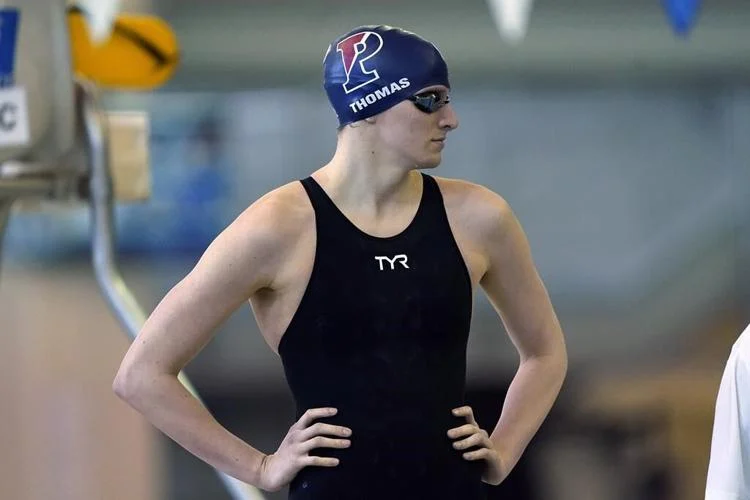
AP/John Bazemore,File
Former Kentucky swimmer Riley Gaines and several other college athletes have filed a lawsuit against the NCAA, alleging that the organization violated their Title IX rights by permitting transgender woman Lia Thomas to compete in the 2022 national championships. The lawsuit, lodged in U.S. District Court in Atlanta, recounts the disbelief experienced by Gaines and fellow swimmers upon learning that they would have to share facilities with Thomas during the championships held in Atlanta. It chronicles various races in which they competed against Thomas, including the 200-yard final where Thomas and Gaines both finished fifth, but Thomas received the fifth-place trophy. Thomas, who swam for Pennsylvania, had previously competed for the men's team at Penn before transitioning genders.
Thomas made history as the first openly transgender athlete to clinch a Division I title in any sport, besting three Olympic medalists for the championship. The lawsuit also highlights the case of Florida swimmer Tylor Mathieu, who was not part of the lawsuit but missed out on first-team All-American honors due to Thomas's participation.
The plaintiffs, which also include athletes from volleyball and track, assert that they are bringing forth the case to safeguard the promise of Title IX for future generations of women in college sports, which they believe the NCAA is currently denying them. The NCAA responded to the lawsuit with a statement reaffirming its commitment to Title IX and women's sports, although they declined to comment further on the pending litigation.
In 2022, the NCAA revised its policies regarding transgender athlete participation in an effort to align with national sports governing bodies. The lawsuit addresses the third phase of these policy revisions, which integrates standards from national and international sports governing bodies into the NCAA's regulations. This phase is slated to take effect in the 2024-25 academic year.
Moreover, the lawsuit names the University of Georgia system as a defendant due to the hosting of the 2022 championships by Georgia Tech, a school within the system. The plaintiffs seek to halt the implementation of NCAA's transgender eligibility policies in Georgia, contending that these policies adversely affect female athletes and violate Title IX.
Representatives from the Georgia schools mentioned in the lawsuit have stated that they have not yet received the legal complaint and, therefore, cannot provide any comments at this time.















